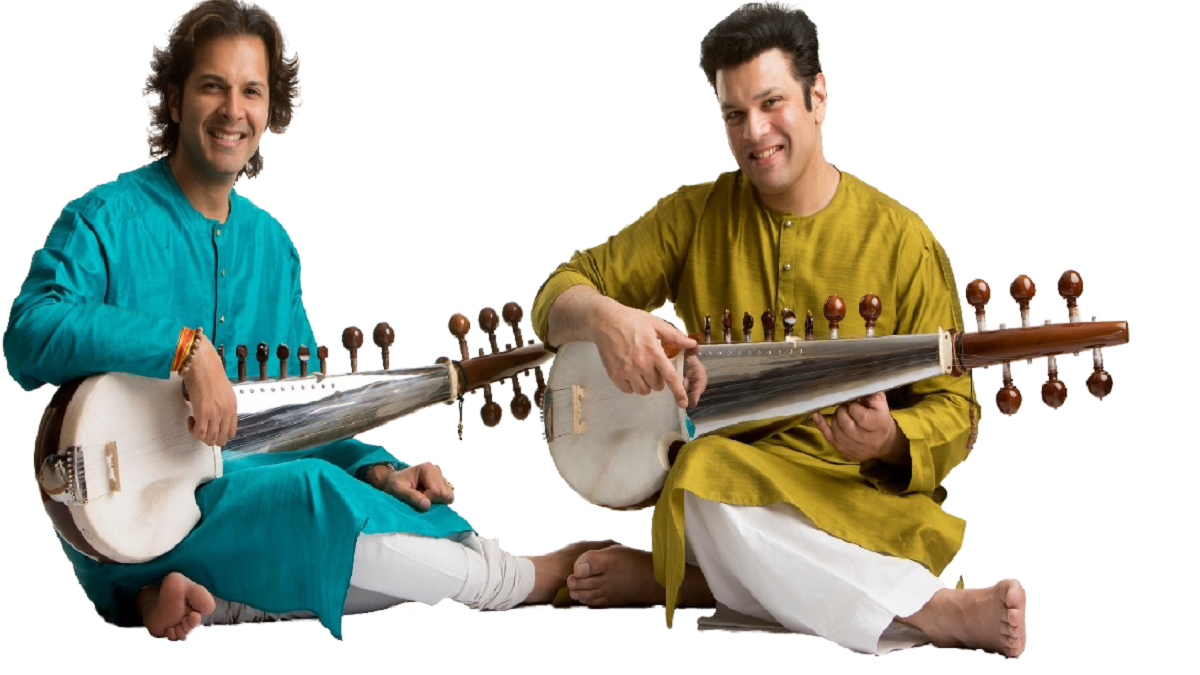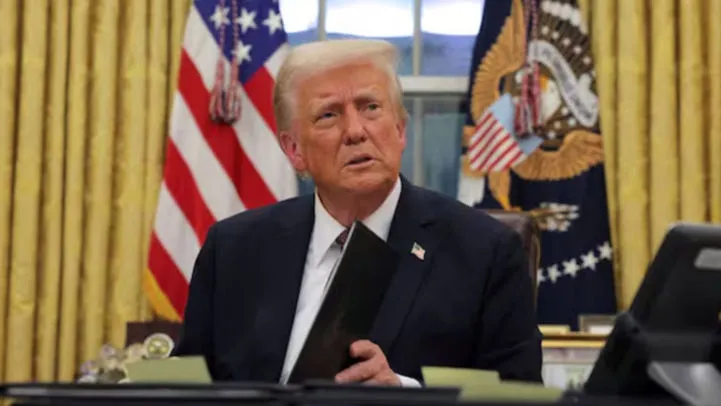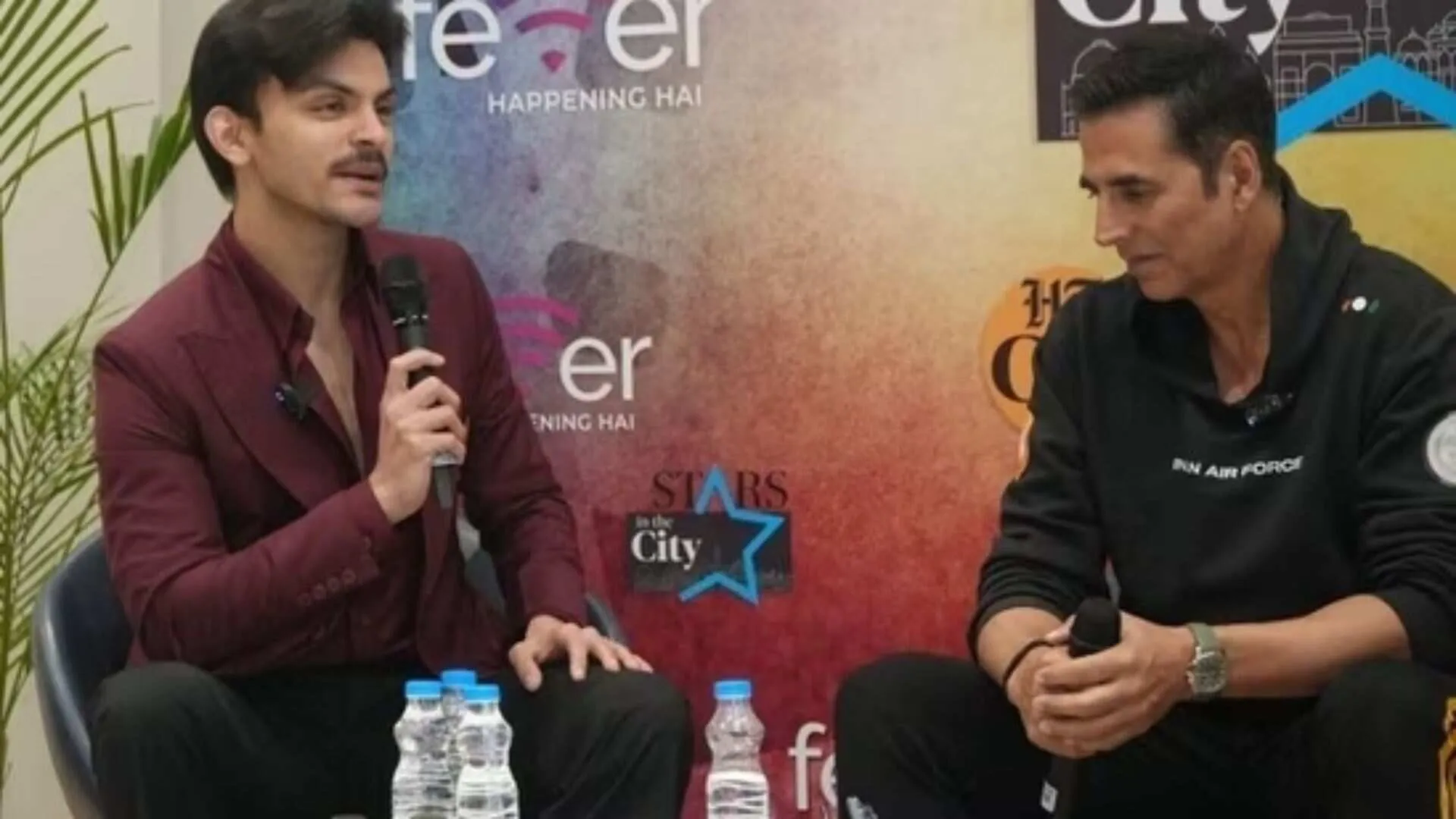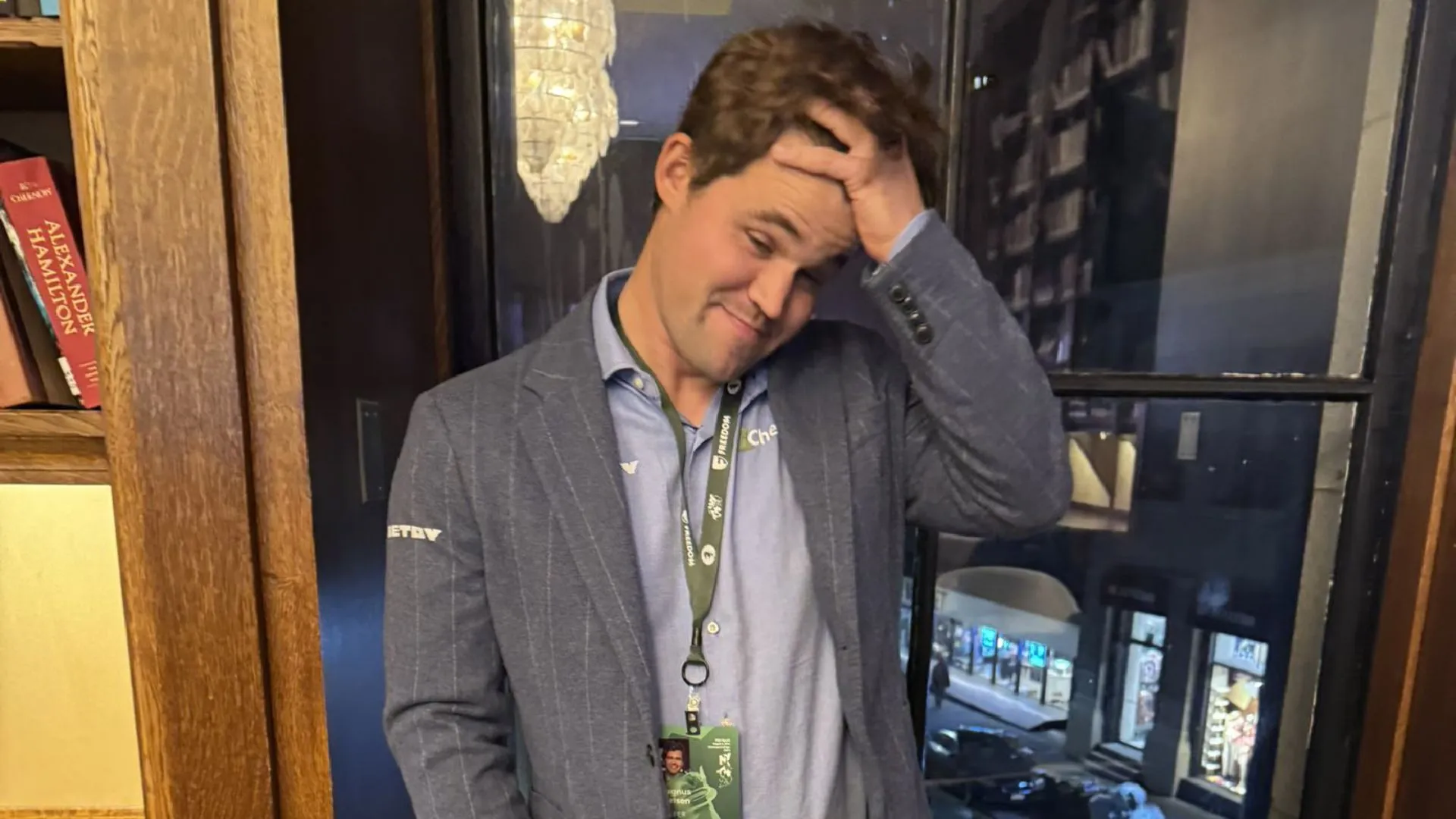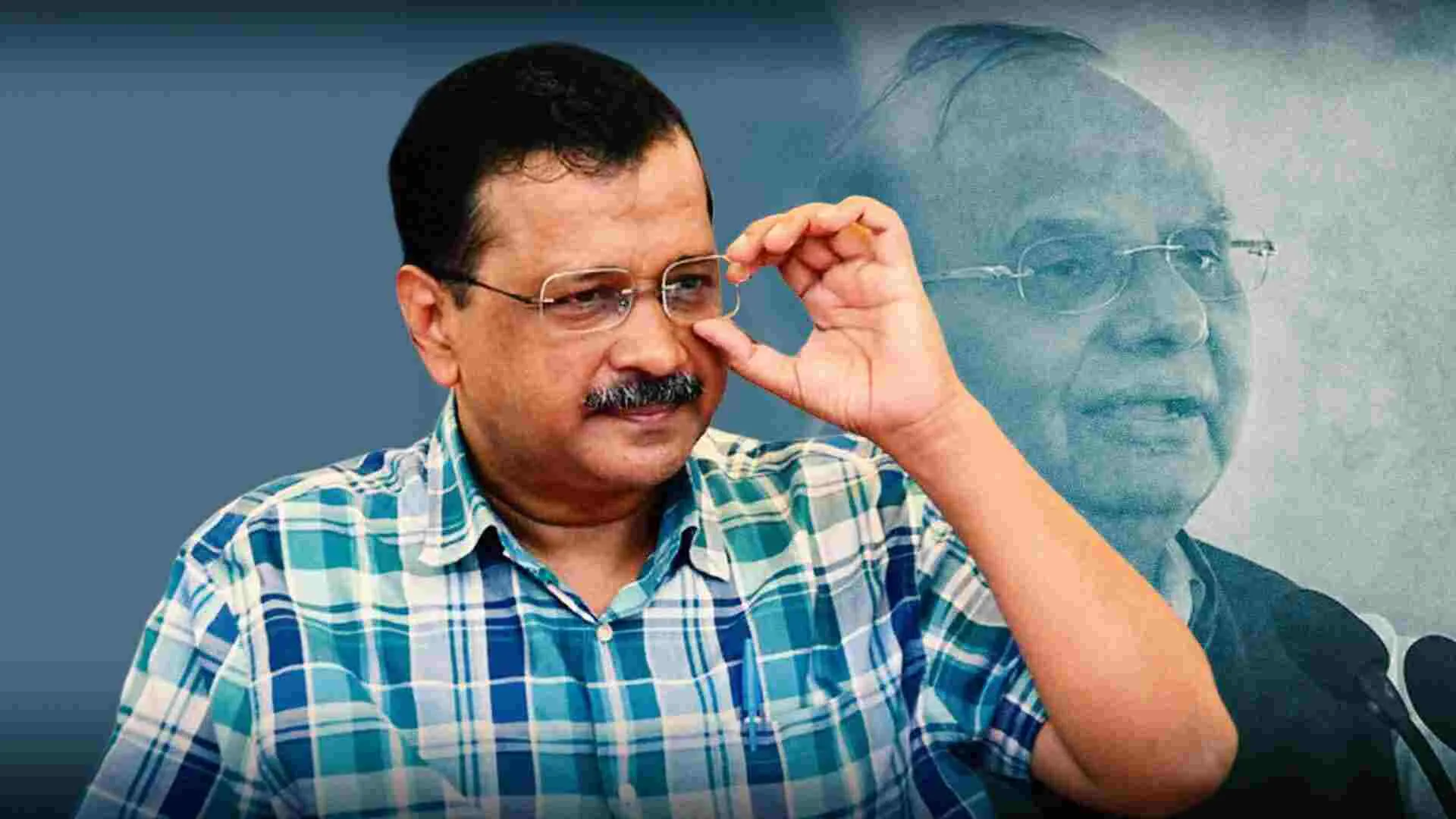Q: How was the experience of working with Sharon Isbin?
Ayaan: Sharon, one of the greatest classical guitarists of our times, is so creative, artistic and enthusiastic. The idea was to bring the spirit of sharing the unique treasures of our own artistic traditions, as well as finding common ground in ‘ragas’ and medieval modes. The idea is to achieve a crossfertilisation at both the cellular and cosmic levels of two classical music traditions, which are often held to be radically different.
Amaan: Through this collaboration, the aim is to preserve the essence of both Indian and Western traditions so they can flow into each other without artistic compromise. The sarod and the guitar come from of common family of stringed instruments; however, sarod is a fretless string instrument played with the fingernails while guitar is a stringed musical instrument, usually with fretted fingerboard and 6 strings, played with the fingers or a plectrum (guitar pick).
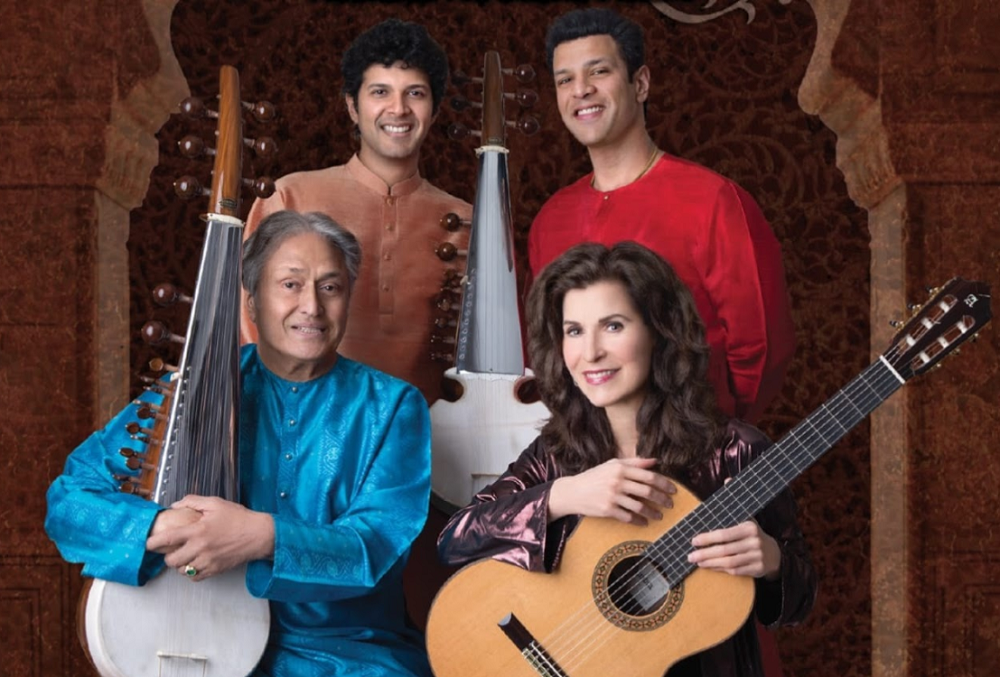
Q: How this idea was conceptualised?
Ayaan: It took many years to get someone to write the score for the guitar. After a few years of waiting, we finally had Kyle Paul, a guitarist who took my father’s residency at Indiana University on board who did the most splendid job. In an amazing way, it interweaves our varied musical, spiritual and artistic traditions with mystical beauty, creativity, grace and great emotion. Indian music finds resonances and parallels in other music, so that the Western musicians concerned can find a way into Indian music without the years of formal training expected of an Indian.
Amaan: An obvious connection featured in this album is that the sarod and guitar are both leading plucked stringed instruments of their respective traditions. The sarod does not have frets, and this enables it better to replicate the essential slides and other embellishments demanded of raga performance. Thus, it requires a guitarist of the calibre of Sharon Isbin to interact with three sarods individually on separate tracks. Yet if we focus only on the music, this is a meeting of living musicians across cultures and it is as feeling human beings that we can understand and appreciate each other and thereby heal this divided world, and what better way is there to achieve this ideal than through the joy and spiritual nourishment that music brings.
Q: You are carrying forward the legacy of Ustad Amjad Ali Khan. How difficult is it to match the expectations of the audiences from you?
Amaan: Even though our conditioning was in a musical environment, now it’s a passion and a reason for my existence. Being Ustad Amjad Ali Khan Saheb’s son, is a matter of great honour. I feel highly privileged that God gave me the opportunity to be born to him. My father’s music of course no doubt is the real inspiration but so is his humility, simplicity and politeness. Almost unreal for a man of his stature. The relationship was more of a fatherson than a teacher-disciple. Of course, the change in role for us and for him from a guru to father and back to a guru is somewhat effortless; however, it is a relationship with two people. He has been the most patient teacher and the most loving father. Abba’s teaching and philosophy is beyond music. It’s a way of life.
Ayaan: It was as natural as that. Though there was no pressure, it was understood. The mantra taught by our parents has been to be a good human being first and good music will follow. Music is who we are and our nature reflects in our music. Therefore, as siblings we know each other’s mind on stage. There is no rehearsal. When we were growing up, our father would always be very happy to see us listen to music, not just practice it. Not just his own music, but the music of an entire range of artistes from the era of our grandfather to the contemporaries of our father. We were never asked to listen to a particular artist, or not to listen to another; to listen only to classical music and not to listen to the music of the West or Bollywood. The choice and the freedom were entirely ours.
Q: Apart from carrying the traditional legacy, how are you working to give a modern touch to classical music especially in this digital age?
Amaan: Indian classical music allows innovation. Our father believes in tradition but not convention. We have played new compositions that have been written for Strings for Peace; however, there was room for all of us to improvise and give our interpretation and musicality to the pieces.
Ayaan: Sky is the limit. The main mantra is that we have never taken any concert for granted. You are as old as your last concert and every concert is the first concert of your life. We have done many collaborations in the past with Allman Brothers band guitarist Derek Trucks, American Folk song writer Carrie Newcomer, Grammy nominated Oud player Rahim Alhaj and also with the performed with London Philharmonic, Avignon Symphony Orchestra, Welsh National Opera and National Youth Orchestra of United Kingdom.
Q. This collaboration brings two different traditions together. How important are such collaborations during a global pandemic?
Ayaan: Strings for Peace, I believe, is extremely relevant. Especially in the wake of a pandemic. We have known Sharon for a decade, and began to really work together only last year. It is difficult to create fusion as it is a marriage of different cultures and it takes a lot of time for the perfect harmony. When we started out, little did we know that this creation will come to fruition at a time when humanity will need to consider meditation and contemplation more than ever.
Amaan: Musicians and listeners of music have been communicating with each other across all barriers through this ‘language’ from time immemorial. As we use flowers in worship, welcoming, honouring, departure, and celebration no matter what our race, origin, religion or language, we similarly arrange musical notes into ‘bouquets’ or compositions which display all our human feelings and emotions.
Q. Due to Covid-19, the future of stagecraft, live shows look bleak. How do you look at the future?
Ayaan: Like all industries, the music industry too has been hit very badly with the pandemic, especially as a congregation is the first step of the field. So many concerts and projects have all been invariably postponed so it has been a big blow; however, better to be safe than sorry. Many artistes all over the world are out of jobs too who have been associated with institutions.
Amaan: It’s a difficult time for all of us. Our salutations to all the doctors, nurses and frontline workers who are doing such a great job round the clock.

